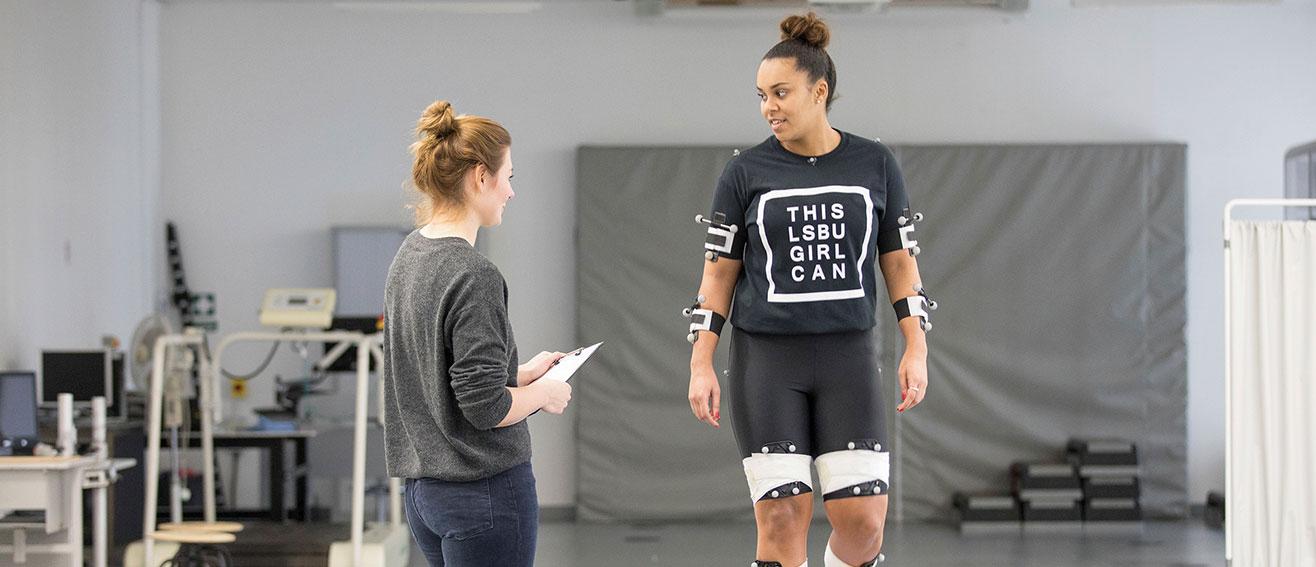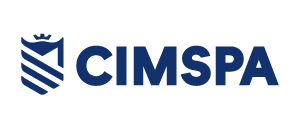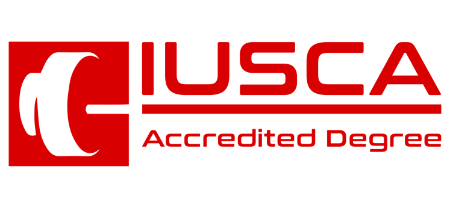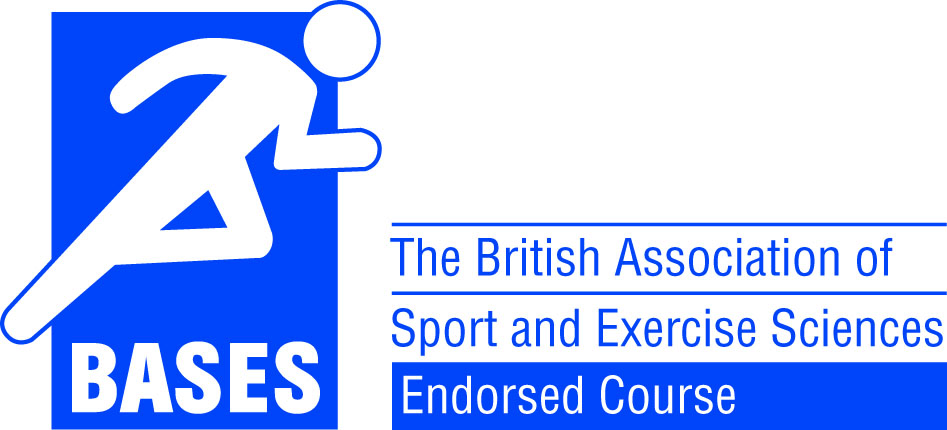Overview
Have you ever wondered how is he so fast? Or how is she so strong? Or perhaps, how do athletes organise their training to perform at their top level? Understanding athletic success requires a broad knowledge of the scientific principles that enable human performance; this practical-based course will advance your practitioner skills in all disciplines of Sports Science so that you can go on to succeed in areas such as elite sport, sports medicine/therapy and societal health and wellbeing.
The BSc in Sport & Exercise Science is delivered by staff internationally recognised for their involvement in sports practice and their contributions to research and teaching. You will have access to specialist sport science facilities and opportunities to advance your practical skills with applied work experience within our Human Performance Centre and research laboratories.
We're passionate about sport at LSBU. In collaboration with LSBU Active, we integrate our degree course with non-academic functions through sport facilities and clubs, leisure activities, vocational taught courses, sports science support services and sport development and coaching. To find out more about what we have to offer - including the Sports Scholarship Programme - take a look at the LSBU Active website.
Why study Sport and Exercise Science at LSBU?
- link
- Graduates from this course are working as Personal Trainers at Nuffield Heath and Energie Fitness as well as a Gym instructor at Hamilton's gym.
- heart
- During your studies, you can obtain professional qualifications to become a Fitness Instructor and Personal Trainer and you have the opportunity to be trained as a Sports Ambassador and earn money working on local sport community projects.
- check-circle
- The course is endorsed by the Chartered Institute for the Management of Sport and Physical Activity (CIMSPA)
- chain
- The course is accredited by the International Universities Strength and Conditioning Association (IUSCA).
- smile
- The course is endorsed by the British Association of Sport and Exercise Sciences (BASES).
- futbol
- 95% of students on this course say that teaching staff are good at explaining things (National Student Survey, 2024)
- poll
- We have a Value Added Score of 9/10 (Guardian, 2024) which means there is a high probability of you gaining a good honours degree with us
| ModeFull-time | Duration3 years | Start dateSeptember | Application codeC600 | Application method UCAS |
Watch our video to see how you can make yourself at home studying at LSBU.
Location
London South Bank University student union is located at 103 Borough Rd, London SE1 0AA.
If you are visiting our Southwark Campus, you may wish to use our downloadable campus map (PNG File 466 KB). For information on accessibility, see our DisabledGo access guides. See our location page for more details.
Entry Level Requirements
Need further information? Call us on 0800 923 8888 to discuss entry requirements.
112 UCAS points
Or equivalent level 3 qualifications.
If you do not meet the entry criteria above we also review any previous skills, knowledge or experience you have gained outside of your education and are happy to talk through any extenuating circumstances you feel relevant.
Visit UCAS for guidance on the tariff.
Choose your country
Select country here:
Missing English and Maths qualifications?
If you do not have the required English and Maths qualifications needed to satisfy the entry requirements for this programme, we have courses available at our partner College that you can take to upskill in these areas. Find out more at South Bank College.
Advanced entry
If you have already completed some studies at another university, we may be able to consider you for advanced entry. Please see our advanced entry page for more information.
United Kingdom
£9535
Tuition fees for home students
International
£15500
Tuition fees for international students
Tuition fees are subject to annual inflationary increases. Find out more about tuition fees for Undergraduate or Postgraduate courses.
-
Full-time
full-time
BSc (Hons) Sport and Exercise Science (FT) - Year 1
UK fee: £9535 International fee: £15500 AOS/LSBU code: 836 Session code: 1FS00 Total course fee: * The full amount is subject to fee increases, the total shown below is based on current fees.
UK: £28605 International: £46500 BSc (Hons) Sport and Exercise Science (FT) - Year 2
UK fee: £9535 International fee: £15500 AOS/LSBU code: 836 Session code: 2FS00 Total course fee: * The full amount is subject to fee increases, the total shown below is based on current fees.
UK: £28605 International: £46500 BSc (Hons) Sport and Exercise Science (FT) - Year 3
UK fee: £9535 International fee: £15500 AOS/LSBU code: 836 Session code: 3FS00 Total course fee: * The full amount is subject to fee increases, the total shown below is based on current fees.
UK: £28605 International: £46500
Note: Extra costs may be incurred for coaching awards not typically delivered by LSBU Active's Academy of Sport.
For more information, including how and when to pay, see our fees and funding section for undergraduate students.
Please check your fee status and whether you are considered a Home, EU or International student for fee-paying purposes and for our regulatory returns, by reading the UKCISA regulations.
See our Tuition Fees Regulations (PDF File 391 KB) and Refund Policy (PDF File 775 KB).
Possible fee changes
The University reserves the right to increase its fees in line with changes to legislation, regulation and any government guidance or decisions.
The fees for international students are reviewed annually and the University reserves the right to increase the tuition fees in line with the RPIX measure of inflation up to 4 per cent.
Scholarships
We offer several types of fee reduction through our scholarships and bursaries. Find the full list and other useful information on our scholarships page.
International students
The course is not currently open to international students.
International (non Home) applicants should follow our international how to apply guide.
Home and International entry
| Mode Full-time | Duration 3 years | Start date September | Application code C600 | Application method UCAS |
Accommodation
Once we have made you an offer, you can apply for accommodation. You can rent from LSBU and you’ll deal directly with the university, not third party providers. That means we can guarantee you options to suit all budgets, with clear tenancy agreements and all-inclusive rents that include insurance for your personal belongings, internet access in each bedroom and on-site laundry facilities.
Or, if you’d rather rent privately, we can give you a list of landlords – just ask our Accommodation Service.
Read more about applying for accommodation at LSBU.
Finance
You don't need to wait for a confirmed place on a course to start applying for student finance. Read how to pay your fees as an undergraduate student.
Prepare to start
Applicant events
After you’ve received your offer we’ll send you emails about events we run to help you prepare for your course.
Enrolment
Before you start your course we’ll send you information on what you’ll need to do before you arrive and during your first few days on campus. You can read about the process on our Enrolment pages.
Year 1
- Biomechanics 1
This module will extend your knowledge of human anatomy and the musculoskeletal system, whilst introducing the basic biomechanical concepts and terminology required to analyse skilled and common movement patterns. This module will provide a clear understanding of the internal and external forces that act on the body, which you use to develop a comprehensive understanding of performance determinants. Assessment method: 100% coursework. - Anatomy and Physiology for Sport
This module will develop your knowledge and understanding in anatomical language and human anatomy of the musculoskeletal system, as well as the physical and chemical principles that underlie physiological functions and metabolic processes. The concept of integration and control in physiology will be developed, beginning with the study of cell membrane function and leading to an appreciation of human physiology through an understanding of systems. Assessment method: 100% coursework. - Sport Psychology
This module will introduce different approaches of psychology and the study of the psychological aspects in exercise and performance. It will cover some theoretical approaches and methods of scientific enquiry. It will also include the application of psychological methods in the development and optimisation of sports performance and exercise participation. This module will provide you with many examples of sport and exercise psychology in action. Assessment method: 100% coursework. - Perception and Action 1
This module is intended to introduce you to the main topic areas in perceptual-motor control, development, learning and performance. It will provide you with the opportunity to gain practical experience in exercise, sport coaching and exercise settings, and gain an understanding of how the sport sciences can be applied to practical activities. This module also aims to introduce you to effective reflective practice techniques. Assessment method: 100% coursework. - Nutrition, Health and Disease
This module will familiarise you with the fundamental principles of human nutrition as a multidisciplinary perspective relating to human health and well-being. You'll explore key concepts of nutritional requirements, food chemistry, macro and micro-nutrient functions. You'll also explore the relationship of diet to health, with special reference to over and under nutrition states. You'll examine dietary recommendations for the maintenance of health and well-being, and you'll consider the assessment of food intake in this context. You'll review the factors determining food choice, and you'll explore the role of nutrition in the context of physical activity. Assessment method: 100% coursework. - Measurement in Sport and Exercise
This module will provide you with a foundation for the study of science at undergraduate level. The basis for the module will be the context, planning and execution of experimental work, along with analysis and presentation of experimental data. A substantial component of study will involve activities in effective written communication and the writing of laboratory reports in particular. Assessment method: 100% coursework.
Year 2
- Biomechanics 2
This module has been designed so you can apply your knowledge of biomechanics to the practical element of analysing human movement. You'll develop awareness of the available equipment, techniques, and methodological considerations involved with biomechanical analyses. At the end of this module, you'll be able to conduct a biomechanical investigation and link your understanding of Newtonian principles to sporting performance. Assessment methods: 100% coursework. - Sport Physiology and Nutrition
This module will develop your knowledge of exercise physiology and a range of the laboratory procedures and skills used in the assessment of athletic populations. Building on the physiological knowledge developed at Level 4, the module will cover the acute and chronic responses to both high and low intensity exercise. It will also develop your ability to explain the fundamental factors that determine muscle strength and power as well as agility and quickness. The module will focus on the responses of the key physiological systems that support exercise performance and the design of training programmes to optimise improvement and minimise or delay fatigue. Assessment methods: 100% coursework. - Sport Psychology 2
This module is intended to develop your understanding of sport and exercise psychology. The module has been designed to advance your knowledge of theory and practice in the psychological preparation of sport performers, and as such will integrate the notions of research informing practice and practical experience informing research. Assessment method: 100% coursework. - Perception and Action 2
This module is designed to develop your application of interdisciplinary scientific principles and evidence-based practice associated with perceptual-motor skill development and performance. Specifically, you'll become proficient at evaluating practice with systematic procedures and engaging in reflective practice to recommend improvements in the development of perceptual-motor skills. You'll also learn to analyse the interdisciplinary performance demands associated with perceptual-motor skills and devise innovations to improve its development or performance. Assessment method: 100% coursework. - Strength and Conditioning
This module will develop the student’s knowledge and understanding of training theory and programme design. It first focuses on the physiological responses and adaptations to exercise training and then advances students’ understanding in a practical context to include selection, administration and interpretation of exercise tests. It will develop the theory of periodisation and approaches to programme design to include sport and athlete performance profiling. Finally, the module introduces recovery strategies and the issue of over training. At the end of this module, you will be able to design, implement and coach a strength and conditioning training programme. Assessment method: 100% coursework. - Research Methods in Sport
This module is intended to develop your understanding of the research process in the area of applied human sciences. It will provide you with knowledge about main research principles and methodologies for data collection and analysis. You'll gain practical experience in developing a research proposal and analysing data with parametric and non-parametric statistical methods, using both MS Excel and IBM Statistical Package for the Social Sciences (SPSS). Assessment method: 100% coursework.
Year 3
- Clinical and applied Biomechanics (optional)
This unit will develop your ability to have a clear understanding of the functional mechanics of the body and the biomechanical underpinning of injury mechanisms. It will provide an opportunity to gain in-depth knowledge of the functional properties of a dynamic musculoskeletal system and subsequent mechanisms of injury. These include muscles, bones and soft tissue behaviour. You'll critically evaluate the concepts, theories and applications underpinning soft tissue, tissue damage, muscle mechanics and mechanical models, bone, cartilage and load bearing capacity, and clinical gait analysis. Assessment methods: 100% coursework. - Environmental Exercise Physiology (optional)
This module is designed to develop your understanding of the role of nutrition and technological aids in optimising performance in different environments. You’ll critically evaluate the use of nutritional supplements and new technologies to support athletes in optimising their training and performance. Assessment methods: 100% coursework. - Applied Sport Psychology (optional)
This module will help extending theory and research into the field to apply sport psychology into practice. You’ll learn to facilitate optimal involvement, performance, and enjoyment in sport and exercise. It will enable you to apply psychological principles of human performance in helping athletes consistently perform in the upper range of their capabilities and more thoroughly enjoy the sport performance process. Assessment methods: 100% coursework. - Clinical Perception and Action (optional)
This module is designed to develop critical evaluation of the scientific literature and applications underpinning the interdisciplinary nature of human performance with particular focus on neurophysiological and perceptual-motor aspects, as well as the construction and evaluation of rehabilitation and management programs. You’ll cover a range of clinical conditions that affect human performance, for instance: stroke; diabetes; heart conditions; pulmonary disease; cancer; osteoporosis; Alzheimer’s; developmental disorders; musculoskeletal injuries; etc. Assessment methods: 100% coursework. - Employability and Placement (optional)
This module will develop the skills, competencies and behaviours to align yourself with your chosen career path. You will explore how reflection and mentoring can impact on career development and learning within an applied setting; identify and perform a variety of professional development strategies; involve yourself in professional networking and successfully complete a period of work experience. Assessment method: 100% coursework. - Research Project
This module will provide you with an opportunity to plan, carry out and report an extended piece of research in sport or exercise science. You'll be assigned a research topic from a list supplied by members of academic staff, according to preferences that you specify. The topic list will cover the major disciplines in sport and exercise science. You may also have the chance to carry out a project that you'll propose yourself, subject to appropriate forward planning and supervisory support. Assessment method: 100% coursework.
Facilities
Sport and Exercise Science Research Centre (SESRC)
The laboratories of the Sport and Exercise Science Research Centre (SESRC) are equipped with specialised and industry standard equipment with ongoing research into Environmental Psychophysiology and Musculoskeletal Biomechanics. Teaching is research-informed and you will get to use these facilities as you progress through the degree.
Check out our facilities by watching the video below:
LSBU Active
You'll have access to a range of sports facilities and equipment, including a fully equipped fitness suite with SMART Centre Technology, a Functional Training Zone, Free Weights Room and Sports Hall. Please visit our LSBU Active pages for more information.
Careers
Employability Service
At LSBU, we want to set you up for a successful career. During your studies – and for two years after you graduate – you’ll have access to our Employability Service, which includes:
- An online board where you can see a wide range of placements: part-time, full-time or voluntary. You can also drop in to see our Job Shop advisers, who are always available to help you take the next step in your search.
- Our Careers Gym offering group workshops on CVs, interview techniques and finding work experience, as well as regular presentations from employers across a range of sectors.
Our Student Enterprise team can also help you start your own business and develop valuable entrepreneurial skills.
The course has employability embedded within its curriculum. Additional to the practical skills-based modules in all levels of study, you will take a work-based module in Level 5 to develop your practitioner skills; and then in Level 6 you have the option to choose a Placement module, which has been designed to empower you to pursue a specialist area of knowledge within the Sport and Exercise sector. In addition, you can boost your CV by gaining extra curricular nationally recognised sporting qualifications such as UK Coaching Certificates and Gym and Personal Trainer awards, which are taught by LSBU Active's Academy of Sport at the University.
Three typical career pathways for a Sport and Exercise Science graduate are: I) Elite Sport and Performance; ii) Clinical Exercise, Health and Fitness and iii) Research, Teaching, Coaching and Sport Development.
For most job roles within these pathways (e.g Coach, School Teacher, Higher Education Lecturer, Research Fellow, Physiotherapist, Sports Therapist, Clinical Exercise Physiologist, Personal Trainer, Sports Scientist) a post-graduate or professional qualification is required. Our Master’s programme in Sport and Exercise Science has been designed with these career pathways in mind and has 40 credit specialist areas of study embedded within the curriculum to allow students to advance their knowledge and professional competencies towards their intended career pathway.
Others have developed their own sports-related businesses, or have taken postgraduate teacher training qualifications.
Every year a professional panel is invited to speak with the students about the career paths they took following their graduation and are invited to make internships and placements available to our students.
Teaching and Assessment
The course delivery includes blended learning which allows you to experience the same high-quality teaching, but with flexible modes of delivery of online and on campus.
Study hours
All modules carry 200 notational hours (20 credits) of study apart from Research Project which carries 400 notional hours(40 credits). Face-to-face (synchronous) contact time for a given module is typically 39 hours; therefore, students are expected to dedicate in excess of 150 hours of self-directed learning.
Support
We will support you throughout your studies. The University provides all students access to the virtual learning environment, Moodle, so materials and online support are available when you need them.
We provide one-to-one support via our professional tutoring system. Your tutor will help you understand coursework feedback, offer guidance as you plan your career, and advise you on work experience to ensure you get the most out of the course.
Teaching is also supported through seminars, online learning environments and specialist advice sessions for topics such as statistics and research methods. In addition to the facilities provided by the university, our laboratories have dedicated computing and experimental equipment.
| Time spent in lectures and seminars | Self-directed learning | |
|---|---|---|
| Year 1 | 29% | 71% |
| Year 2 | 26% | 74% |
| Year 3 | 24% | 76% |
Assessment
The course uses a blend of formative and summative assessment. Formative assessment provides structured feedback to support students in the summative task; therefore, scaffolding the approach to assessment and ensuring appropriate development of critical thinking, academic writing, practical and technical comprehension, and creativity.
Most modules are assessed by coursework only, using a blended approach to assessment (written essays, lab reports, oral presentations, oral defences). At level 4, knowledge and understanding is typically assessed via written reports and multiple choice questionnaires. As students progress through the course, their transferrable skills are scrutinised more with oral presentations becoming a more common form of assessment. Each module has a 20 credit accumulation and transfer apart from Research Project in Level 6, which has 40 credits assigned to it for student study hours.
In order to obtain an award, students must pass modules and gain the required number of credits as stated in the LSBU regulations for taught BSc programmes.
Personal Tutoring
As an undergraduate Applied Sciences student, you will be allocated a named tutor during your first three weeks at LSBU. The role of your tutor is to be your primary contact for academic and professional development support.
Your tutor will support you to get the most of your time at LSBU, providing advice and signposting to other sources of support in the University.
Your tutor should be the first person at the university that you speak to if you are having any difficulties that are affecting your work. These could be academic, financial, health-related or another type of problem.
In your first semester you will attend a series of weekly personal tutor group sessions to introduce you to elements such as the module structure and the Moodle site, as well as workshops on assessment expectations.
Key topics and skills
Students will develop their intellectual skills such that they are able to:
- Evaluate and analyse problems relating to human performance and suggest appropriate solutions in the context of academic study.
- Apply subject-specific concepts.
- Appraise the effects of intervention on sport and exercise performance.
- Critically reflect upon personal and observed practices.
Students will acquire and develop practical skills such that they are able to:
- Undertake laboratory and field work competently and safely.
- Recognise and respond to ethical, moral, health and safety and other issues.
- Execute a piece of independent work using appropriate media to communicate the findings in a way which demonstrates the ability to synthesise information and knowledge.
- Design and implement training and/or exercise regimes.
- Act upon the outcome of the reflective analysis of a practical or professional skill.
Students will acquire and develop transferrable skills such that they are able to:
- Manage and be able to adapt to a study schedule.
- Effectively communicate ideas, arguments and concepts via a range of media to a variety of audiences.
- Use the full range of sources of information, citing references properly.
- Demonstrate appropriate numerical skills.
- Be competent in the use of information technology e.g. word processing, spreadsheets, presentation software, internet).
For More Information:
Please contact the Course Leader: Dr. Darren James, email: jamesd6@lsbu.ac.uk






